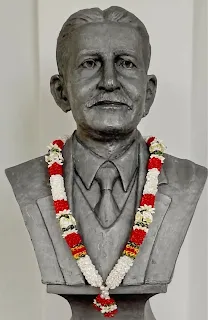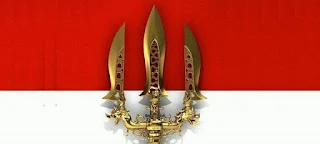Director: Jean-Jacques Annaud
 |
| Gustav Hermann Krimbiegel (1865-1956) https://medium.com/@andrewabranches/ gustav-hermann-krumbiegel-b6bdb9ad28c0 |
 |
| Gustav Hermann Krimbiegel (1865-1956) https://medium.com/@andrewabranches/ gustav-hermann-krumbiegel-b6bdb9ad28c0 |
 |
| King Xerxes |
 |
| Civilisation does not assure civility! |
 |
| Belvedere Palace, Vienna |
 |
| Military Museum Vienna |
 |
| Natural History Museum, Vienna. |
 My cycling buddy, JT, is fondly referred to as JC (Jesus Christ). Like JC, like a magnet, JT has been drawing in cyclists and potential cyclists in droves into his fold. After viewing his pictures and accolades on social media, his friends and relatives had all converted from couch potatoes to cycling-jersey-donning cleated cyclists. And these converts look at JT as JC. His every breath is sacred, and his every word is gospel truth.
My cycling buddy, JT, is fondly referred to as JC (Jesus Christ). Like JC, like a magnet, JT has been drawing in cyclists and potential cyclists in droves into his fold. After viewing his pictures and accolades on social media, his friends and relatives had all converted from couch potatoes to cycling-jersey-donning cleated cyclists. And these converts look at JT as JC. His every breath is sacred, and his every word is gospel truth.
In both cases, it appears that if the audiences are dogmatic to follow what they hear without using their faculties to sieve the chaff from the wheat, they will not be able to explore their true potential. They simply cannot be all blinkered and refuse to see beyond the rhetorics.
I think early practitioners of Abrahamic faiths are guilty of this. Some went one step further. As stated by St Augustine, "… all superstition of pagans and heathens should be annihilated is what God wants, God commands, God proclaims!"
Come to think of it, this is how jihadis think. They interpret the scriptures as they deem fit and impose their understanding of God's desire upon all.
 |
| The ruins of Palmyra |
It probably started in Palmyra's Temple of Athena in Syria, circa 385 CE. The idea of a goddess symbolising wisdom and war was too much for newly converted Christians to stomach. They only saw the exaggerated display of wealth and the glorification of a pagan deity. The accentuated silhouette of their body embarrassed Christians. Years of growing conversion climaxed with the imposition of their will on the rest. It immensely helped when the Roman monarch embraced Christianity and agreed to enforce God's law on Earth.
 |
| Hypatia of Alexandria |
Ancient Alexandria saw the monumental work of Euclid and Ptolemy. To the new converts, their jobs were blasphemous. If the good said that God created heaven and Earth and everything on it in six days, so be it. Who are we, the product of the Original Sin, to question? The idea of a female mathematician-philosopher, Hypatia, running around telling people about the stars and the skies was repulsive. The sight of men learning the art of calculation was not in. In the name of religion, they killed and mutilated her body in the most inhumane way. All her work and wisdom from Alexandria's Great Library, one of the cradles of the Classical World, went up in flames.
History, as the Christian victors wrote it, made us believe that the pagan world became progressively disillusioned with the traditional Gods and rituals. They started disbelieving their myths and twisted tales and willingly embraced Christianity to seek the truth. The reality is not that.
Early Christians were disillusioned with the world they lived in. They were fearful of a strange hostile world possessed by demons and made it their God-given duty to destroy these demonic representations. And they viewed these temples and deities as such.
Roman public bath
Come to think of it, what the Christian zealots did in Pre-Christian Rome was no different from the present-day ISIS or Taliban.
 |
| ©Elanour Tomlinson |
After the so-called mourning period, it will be pretty much no-holds-barred, I guess.
But now, even before the dead are laid to rest, the wokies are already at it. I am referring to the recent demise of one of the longest reigning monarchs of the once most enormous Empire of the world, where the sun never set. True, she inherited a bounty of loot from the world over. At one time, pirates scaling the Atlantic high seas were free to pilfer gold from Spanish vessels legitimately under the auspices of the British Crown as long as they paid their dues to the monarch.
True, they went out with their imperial stance with a chip on their shoulders and a stiff upper lip to match. And plunder wealth from civilisations that had found peace with their place in the sun, create mayhem to liberate the oppressed and destroy other cultures with their new economic model.
 This turn of events is inevitable. Every nation wants to improve life for itself. The designated / king does that for his subject at the expense of a gamut of benefits for himself and those under his umbrage who held his torch. This way of conquest was thought to trickle down the food chain and continues to date.
This turn of events is inevitable. Every nation wants to improve life for itself. The designated / king does that for his subject at the expense of a gamut of benefits for himself and those under his umbrage who held his torch. This way of conquest was thought to trickle down the food chain and continues to date.
There were plundering imperialists, and there were cruel plundering imperialists. Some maimed their subjects without caring about their future. In a way, the British made some humane decisions to ease their administration but ended up causing their Empire's own destruction along with other compelling factors. They laid down plans for proper administrative machinery, invested in education for natives to help (and look down on their own cultures) and created an extensive web of transportation networks.
If not for the English, this blog would not be in English or an incomprehensible language that could hardly pass for English. We were lucky that English became the lingua franca of the world, the modern language of communication. Left to our politicians to steer us to the future, we would still be a fumbling fishing village ruled by despots, not that they are not preventing this from happening. An unthinking obedient herd of the population led by their leash to the slaughter is their idea of utopia. If we had been savaged by colonists, we would have been brutalised by our own kind. As the Tamil saying goes, "Whether Rama or Raavan rule, it doesn't matter to me, I don't give a damn!"
 |
| Civilisation does not assure civility! |
 |
| Javanese Trishul |
 |
| Credit: Cinemusefilms |